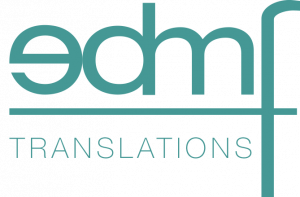Business translations: a client’s perspective…
In our new series of interviews we ask company owners, senior executives and leaders how foreign language, translation and interpreting affect their daily lives and work.
Globalisation means that working with international clients, customers and partners is more common than ever before. But is it possible to work in a foreign market without the right tools? Are professional translation services important to businesses?
We sat down for a chat with Stuart McAlister, Managing Director of Inter Relocation, one of Hungary’s leading providers of relocation destination services, to find out what it’s like coming to a new country where you don’t understand a thing the locals are saying, and how knowledge of the language can impact on a business.
When you came to Hungary 23 years ago, can you remember your first impressions of the country?

1995 and 2016 in Hungary
I moved to Hungary in the summer of 1995. My first impressions were a mix of amazement, excitement and probably a little fear as well. It was my first time living away from the north of England and to say that Hungary came as a shock is an understatement. Of course a shock to any system can have a positive influence and I think that is true in my case.
I think I know what you’re getting at, Hungarian has a reputation for being a difficult language to learn? How did you find it?
I certainly struggled at first. Back in those days it was far more difficult to be an expat without speaking Hungarian at least at a reasonable level. Nowadays almost every shop and business and certainly every restaurant and bar, has English speaking staff, but back in the mid-90s there were only limited and usually expensive options if one wanted to live an expat life without learning the language.
My good fortune was having a flatmate for 4 years who did not speak English. My American flatmate and I had a spare room and ended up letting it to a friend of a friend who only spoke Hungarian. Being forced to attempt communication with someone every day was an incredible experience and gave me the boost so that I could at least have conversations. Once I had the foundations of language knowledge, building on top of that was far easier.
Many people no doubt have had similar experiences to you. In your business you deal a lot with expats coming to Hungary from all round the world. How daunting can a lack of Hungarian be when living and working in Hungary?
I think it’s far easier now. Many or perhaps even most of our customers join international workplaces, so communication at work is easy. Likewise it is possible to shop, eat, drink and get a wide range of services in Budapest, without the need to speak Hungarian.
However, that also makes it far harder to learn Hungarian because there is far less motivation and frankly far fewer opportunities where an expat is forced to build a basic knowledge and then develop that.
I actually like to meet expats living in other parts of Hungary. They remind me of the struggles I went through in the early years and I admire their efforts to learn the language.
What about translation in your business? What kind of translations do you regularly need? Why is it important that these are done professionally?

“This requires a far more complex set of skills and we know we can rely on EDMF for this kind of support.”
We have two types of translation requirement. Firstly, we are obliged to request official translations for any immigration application we make for a client.
Secondly, we generally need editorial content or marketing texts, some of which we commission for our sister publication, Expat Press Hungary. For this kind of work we turn to EDMF and for a very good reason. Any article that is written for Expat Press in Hungary must read as if it were originally written in English and for that to be possible, we need far more than a simple translation and copy editing service. The translator must actually feel what is trying to be communicated in the source language and change the editorial text in English so the message is the same but the words sound like they were originally written in English. This requires a far more complex set of skills and we know we can rely on EDMF for this kind of support.
That’s good to hear! Translation can be a tricky business, especially when you don’t understand the target language. Before working with EDMF did you ever have any bad experiences with translation for Inter Relocation, can you tell us what impact this had?
Absolutely. Several years ago, we decided that a German language version of our website would be good for business. We had an agency translate the text into German and I was told this had been copy edited as well. No one on our team spoke German at the time so I could not check it.
Whilst I trusted the agency I decided to get a second opinion on the text and asked a German friend to review the translation for me. That friend completed a quite extensive round of copy editing, which certainly raised concerns in my mind about how “German” the German language version of the site sounded.
My fears were confirmed when some time later a partner and friend from the relocation industry in Germany called to tell me that he had read through the German version of our site and to say the least, it needed a lot of work.
Biography:
Stuart McAlister is a British citizen who has been based in Hungary for around 20 years. Stuart studied business at Sheffield Hallam University and worked as a government administrator, TEFL teacher and IT trainer/manager before discovering the world of relocation in 2001.
He founded his company, Inter Relocation in 2002 as a small destination services and immigration compliance provider in Budapest. From humble beginnings with a staff of 3 the company grew both locally in Hungary and then outbound over the following years to the point where Inter Relocation now delivers relocation services in 23 countries across Central and Eastern Europe.
In 2017 he was elected for the Vice-President of the European Relocation Association.
One of the cornerstones of Inter Relocation’s business model is the provision of in-house immigration compliance and over the last 16 years, Stuart has gained a broad knowledge of the immigration process and challenges across a diverse region encompassing both EU and non-EU states.
Between 2002-2012 he worked with the Robert Burns International Foundation to manage the annual Budapest Robert Burns Supper. This is a major charity event, run by volunteer business people. They have raised over EUR 500,000 in the 12 years the Supper has been running in Budapest.









